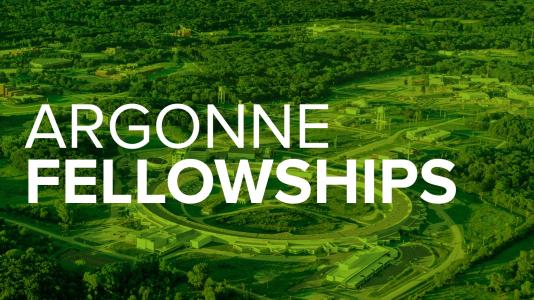
The U.S. Department of Energy’s (DOE) Argonne National Laboratory has awarded its newest cohort of named fellowships, providing five young scientists with additional support as they pursue pivotal discoveries that will make Americans safer and better off.
For 2022, the laboratory has named three Maria Goeppert Mayer Fellows and two Walter Massey Fellows. Maria Goeppert Mayer was a pioneering nuclear physicist who received the 1963 Nobel Prize in physics for discovering, at Argonne, the shell model of the atomic nucleus. Walter Massey is a leading African American scientist and executive who served as Argonne’s director in the 1980s and has served as the president of Morehouse College and the School of the Art Institute of Chicago.
The Maria Goeppert Mayer Fellows are Afroditi Papodopoulou, Gordon Peterson and Soham Saha. The Walter Massey Fellows are Elizabeth Laudadio and Sixbert Muhoza.
“We are excited to welcome these fellows to Argonne. They show great promise to be leaders in their fields, and our lab is an exceptional place to help them grow their careers,” said Argonne Director Paul Kearns. “Our latest Goeppert Mayer and Massey Fellows will unlock new frontiers for America’s energy future, which will make an impact on many different areas of science, from high-energy physics to materials science.”
Papodopoulou is pursuing her Ph.D. in physics from MIT. Her research interests include neutrino interactions, precision measurements in particle physics and the development of neutrino simulations. She plans to do research in Argonne’s High Energy Physics division to study the fundamental properties of neutrinos.
Peterson received his Ph.D. in materials chemistry from the University of Wisconsin in 2020 and is now a postdoctoral researcher at the University of Houston. His research interests include designing chemically intuitive machine learning models to guide the discovery of functional energy materials. He plans to do research in Argonne’s Materials Science division on the “synergistic design of sustainable energy materials: merging data science, synthesis and computation for energy-efficient techniques.”
Saha received his Ph.D. from Purdue University in 2021 in electrical engineering, where he specialized in optics and materials science, with expertise in nanodevice design, fabrication and testing. He currently works at Purdue’s Birck Nanotechnology Center. He plans to do research in Argonne’s Nanoscience and Technology division on “controlling the efficiency, phase and polarization of high-harmonic conversion of light: a path to compact, tabletop, femtosecond X-ray sources.”
Laudadio received her Ph.D. in chemistry from the University of Wisconsin in 2020 and is a postdoctoral associate in Argonne’s Chemical and Fuel Cycle Technologies division. At Argonne, she is developing, testing and optimizing the performance of a custom-built, fiber optic-coupled Raman spectrometer for in situ analysis of fluids and materials used in a range of environments. She plans to do research on the “systematic design of multi-layer atomic layer deposition coatings for optimal corrosion resistance.”
Muhoza received his Ph.D. in materials chemistry from Wake Forest University in 2019, where he currently works as a postdoctoral researcher. His research interests include the high-temperature processing of solid oxide fuel cell nanomaterials. He plans to do research in Argonne’s Applied Materials division on “novel 2D metal carbides and nitrides for energy storage and electrochemical devices for decarbonization.”
“Being able to award these fellowships shows Argonne’s commitment to investing in the next generation of researchers and continuing to build the pipeline of great science,” said Argonne Deputy Laboratory Director for Science Stephen Streiffer.
Argonne National Laboratory seeks solutions to pressing national problems in science and technology. The nation’s first national laboratory, Argonne conducts leading-edge basic and applied scientific research in virtually every scientific discipline. Argonne researchers work closely with researchers from hundreds of companies, universities, and federal, state and municipal agencies to help them solve their specific problems, advance America’s scientific leadership and prepare the nation for a better future. With employees from more than 60 nations, Argonne is managed by UChicago Argonne, LLC for the U.S. Department of Energy’s Office of Science.
The U.S. Department of Energy’s Office of Science is the single largest supporter of basic research in the physical sciences in the United States and is working to address some of the most pressing challenges of our time. For more information, visit https://energy.gov/science.